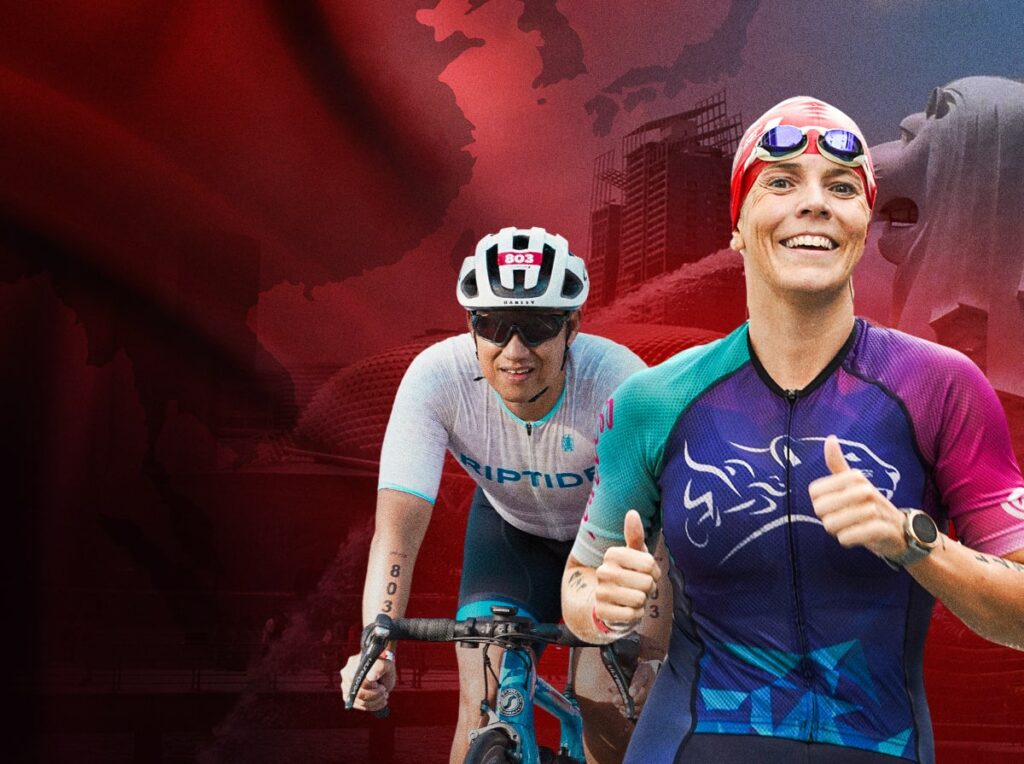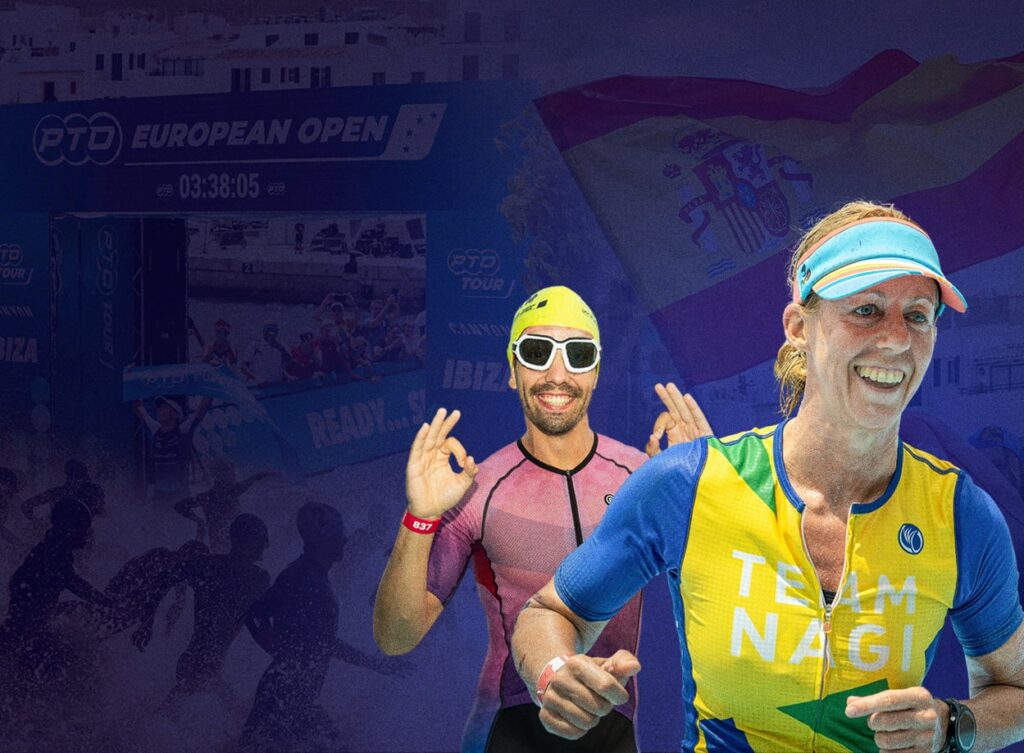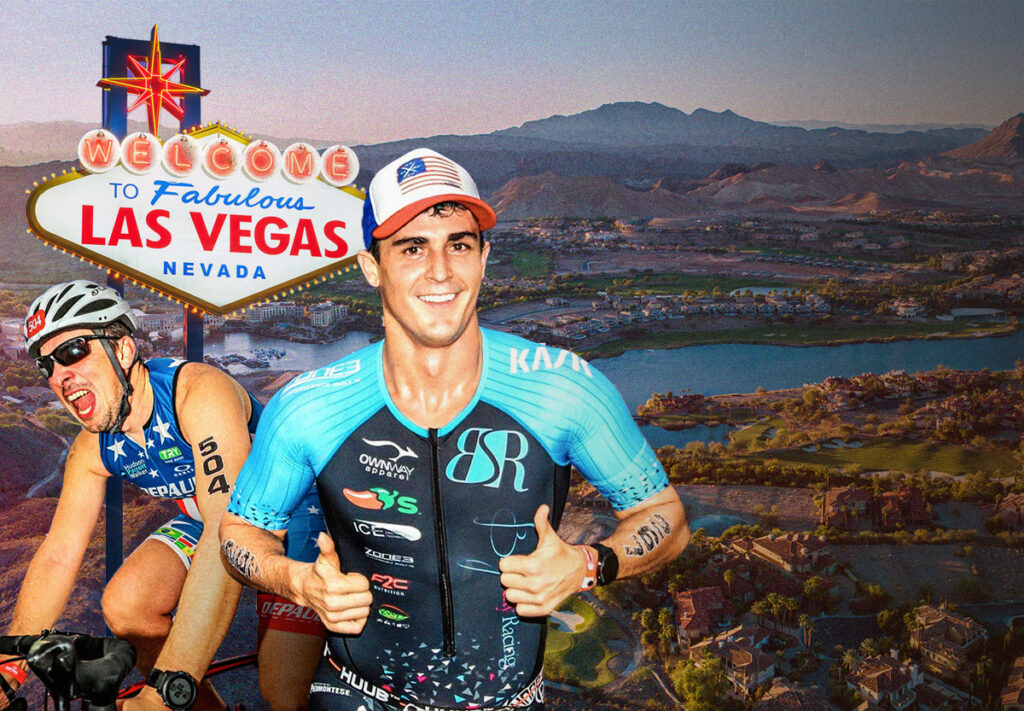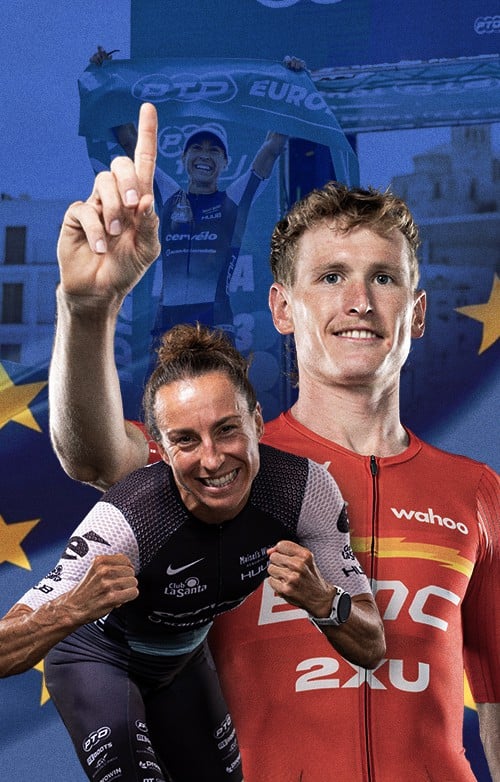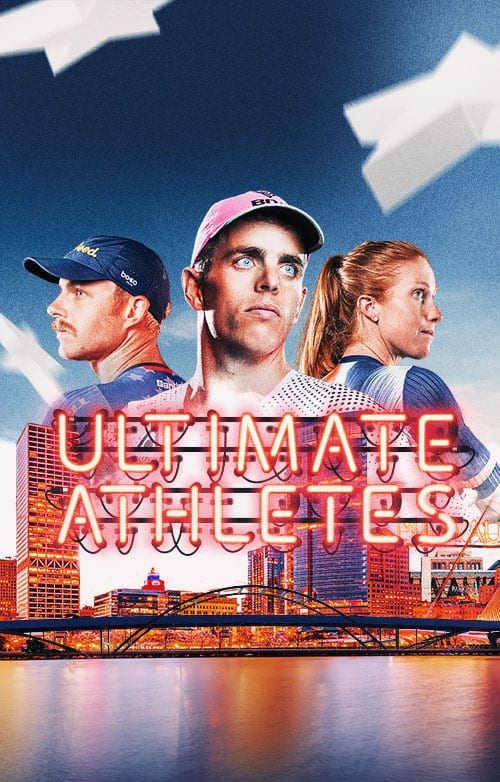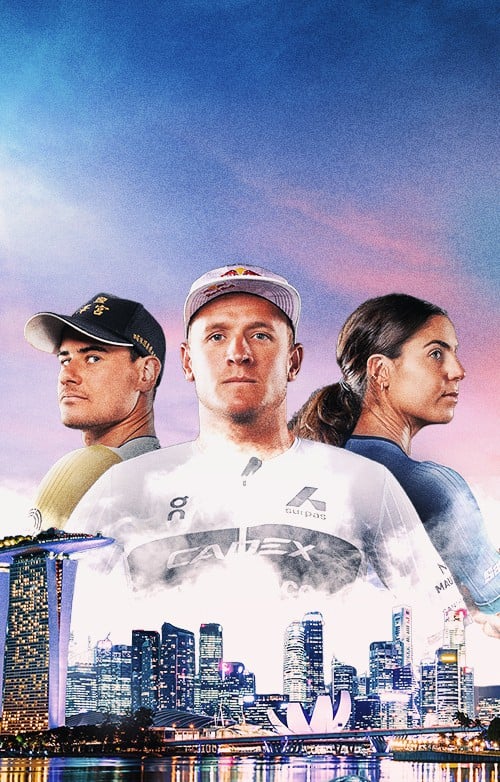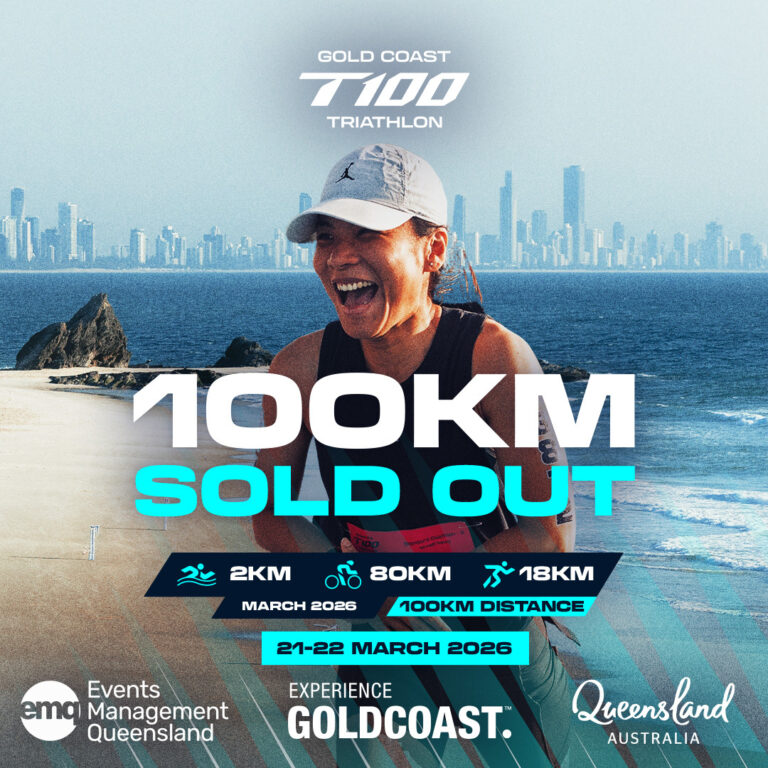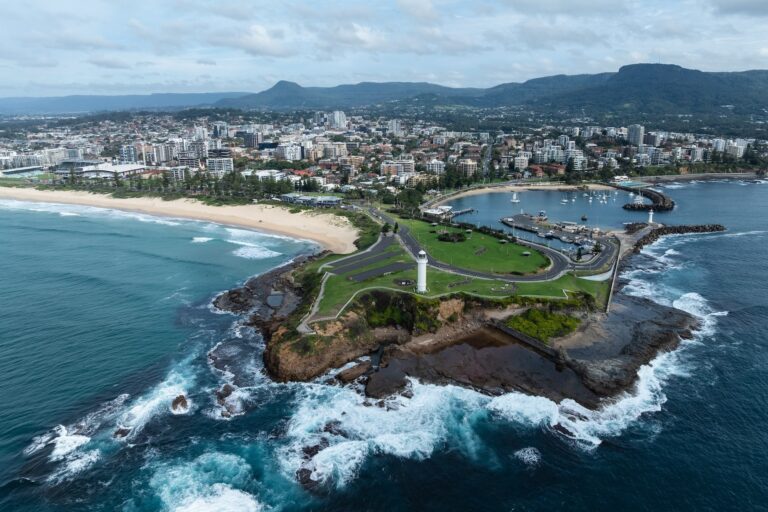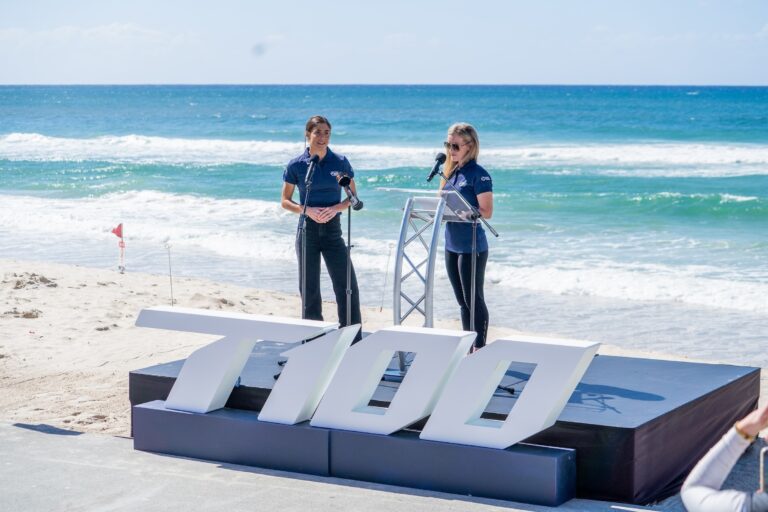20 October 2022
London, UK: Following her breakthrough World Championship win in Kona, Chelsea Sodaro has called for greater equality in sport, arguing that women should not have to choose between being world class athletes and being mothers.
Reflecting on her victory earlier this month, the 33-year old American is determined to share her story in the hope that other sports follow the lead of the Professional Triathletes Organisation (PTO) in supporting women ‘through the arc of their entire career’, understanding that ‘women can peak in their mid to late thirties’.
Speaking on BBC World, PTO World #6 Sodaro, who has an 18-month old daughter, Skylar, said:
“What’s been so challenging in the past, when women get married, when they get pregnant, it’s considered the kiss of death to your athletic career and what the PTO is doing is saying ‘no’. We value you. You are incredible athletes. We want you here. You matter. We want to support you so that you can find out how good you can be.”
“Women peak in our mid to late thirties in this long stuff and so we need the opportunities to be able to stay in the sport, and we shouldn’t have to choose between being world class athletes and being moms. We can do it both. We just need some support.”
Sodaro beat a stacked field on the Big Island to break a number of barriers. The first woman or man to win their debut there since Britain’s Chrissie Wellington in 2007; the first win by an American woman since Paula Newby-Fraser in 1996; and only the second mum to win the World Championship in Kona after Switzerland’s Natascha Badmann.
In an intimate, new feature published today by the PTO, Chelsea also talks about: the inspiration and encouragement she has taken from other mums; the huge role played by her husband, Steve, and her family during her return from childbirth 18 months ago; and how support from the athlete-owned PTO has also been a key factor.
On taking inspiration from other Mums
“What really hits me is when I talk to mums who came up to me in Kona saying, you know, that they relate to my story and that they have been going through the same things that I’ve been going through [postpartum anxiety, childcare support]. And that, you know, maybe I’ve inspired them to dream bigger.”
On her struggles and family support
“Expectations versus my reality of what training during pregnancy would be like were wildly different. I thought that I would be able to just kind of keep on plugging away and maybe tail things back at the end. But I actually had morning sickness for 35 weeks of my pregnancy.”
“I want to be clear about my struggles. Just because I’ve had this success, it doesn’t get easier. I don’t want people to feel it’s all good now. I’m not superwoman.”
“I’ve worked so hard for this. My family has invested so much in this. And you just never know if it’s going to be worth it. Like you never know whether you’re going to get your moment. I am so proud that they got their moment. I think that’s what I was feeling when I crossed the finish line.”
“Steve is everything. He’s the reason that I’m in this sport and the reason that I’ve continued in the sport. He has invested and sacrificed so much for my career. I’ve tried to quit triathlon a lot of times the past 18 months, but he wouldn’t let me. He just kept on believing in me.”
On PTO support
“The PTO has made my life better on a number of levels. It’s part race owner, part media broadcaster and part entrepreneurial business and just the amount of money and resources that are being put into the organisation, not just to pay us in a way that I think professional athletes deserve to be compensated but also the way they are promoting and sharing our stories. The sport really attracts incredible personalities so I think that the more we can share our stories and performances the more people will want to follow the sport.”
“On the other side of that, the PTO launched a ground-breaking maternity policy at the end of 2020. I found out about the policy when I was five or six months pregnant. So it didn’t go into my family planning decision, but when I heard about the policy, it honestly brought tears to my eyes and it wasn’t because I was going to be getting a cheque while I was pregnant and in the first few months postpartum. But more emotional relief that somebody cared. All you want when you’re a new mom is for someone to ask ‘how can I support you?’ and in our industry that’s really rare. In professional sport it’s this kind of a ‘what have you done for me lately?’ attitude and you’re only as good as your last race.”
“The maternity leave policy from the PTO, from my standpoint, says…we care about female athletes…and that’s what’s been so challenging in the past, when women get married, when they get pregnant, it’s considered the kiss of death to your athletic career and what the PTO is doing is saying ‘no’. We value you. You are incredible athletes. We want you here. You matter. We want to support you so that you can find out how good you can be.”
Asked why other sports do not appear to be following this lead, Chelsea said:
“I think it’s that lack of instant gratification. That lack of understanding and ignorance of the value of women in sport. You look at major marathons and more than 50% of the mass field is women. That’s an untapped market, honestly. The PTO is brilliant from a business standpoint because women are relatable. Especially women with kids, and some of these sports like triathlon where the cost of entry is quite high, so who are the people who have access to it? Women who are in their thirties and forties and have resources to do the sport. I honestly think it’s a brilliant move and hopefully other sports will follow suit soon because it’s great from a human rights standpoint, but it’s also right from a business standpoint.”
“I think we are in a special era where we have athletes like Alex Morgan and Allyson Felix. So I think that the more women we have speaking out, who are visible and standing up for what is right…it’s going to change the game. My dream is that when my daughter is of a professional age, regardless of whether she is in sport or not, that there won’t be a pay gap between men and women in the workforce and that’s why I feel it’s so important to share my story. It’s not really about me, it’s about her.”
The PTO feature charts Chelsea’s journey from pregnancy in 2020 through to having her daughter, Skylar, in March 2021; and then returning to top level competition, before finishing with exerts from a post-Kona interview. You can watch it in full here.
-ends-
For Further Information
Credit for lead photograph: PTO | James Mitchell
Professional Triathletes Organisation
Anthony Scammell E: [email protected]
About the PTO
The PTO is a new body co-owned by the professional athletes, seeking to elevate and grow the sport of triathlon and take it to the next level. The inaugural PTO Tour race schedule for 2022 included: the first-ever PTO Canadian Open (July 23-24); the second edition of $1.5M Ryder Cup-style Collins Cup (August 20), which sees Team Europe take on Team US and Team International; and the first PTO US Open (September 17-18). Each Open carries a minimum prize money of $1M – split equally between women and men – and will be raced over 100km (2km swim, 80km bike and 18km run). In 2023 and 2024, the PTO Tour plans to expand with the PTO European Open and the PTO Asian Open, alongside their US and Canadian equivalents and the Collins Cup.
About the PTO Paid Leave Maternity Policy
- Under the policy, a woman PTO Professional is entitled to take up to 15 months of Maternity Leave, beginning from her pregnancy date and ending six months after birth. At the time of her pregnancy, her PTO World Ranking will be fixed, and during her Maternity Leave she will be paid monthly payments based on 100% of the PTO Annual Bonus Plan in effect at the time.
- For example, under the PTO’s existing Annual Bonus Plan, the woman PTO Professional ranked World No.5 would be entitled to a $60,000 bonus payment at the end of a calendar year. In the event the woman PTO Professional ranked World No.5 woman athlete becomes pregnant and takes her full 15 months Maternity Leave, she shall be paid $5,000 per month for 15 months from her pregnancy date, totalling $75,000.
- The PTO is rare among professional sporting organisations in that it represents both men and women professionals.
- Other athletes who have used the policy and are now back competing include: PTO World #14 Jocelyn McCauley and Germany’s Daniel Bleymehl, the PTO World #26.



